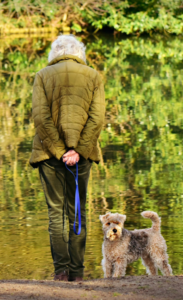 Self Care in Quarantine
Self Care in Quarantine
The CDC defines quarantine as “the separation and restriction of movement of people who have potentially been exposed to a contagious disease to ascertain if they become unwell, so reducing the risk of them infecting others.” While we are not in active, city-wide quarantine currently, there are subsets of people in Sand Springs that spend time in quarantine due to exposure. This happens at all levels of community but the effects are the same.
There are two types of stressors when dealing with a quarantine, stressors during quarantine, and stressors post-quarantine. During quarantine, stress is throughout the entirety, fear of infection, frustration and boredom, inadequate supplies and inadequate information are all a reality during. Post quarantine stressors deal mainly with finances and stigma. The inability to work or do all of schoolwork creates a “financial” debt that needs to be repaid or made up post-quarantine, with stigma of being quarantined being a less obvious or direct stressor on those who had the unfortunate experience of being quarantined.
While quarantine is necessary to mitigate the spread of Covid, the effects can be harmful on us, our kids, and everyone’s mental health. There are several ways to cope with quarantine and Covid during this time:
-
- Plan. Have a plan for each day. Starting out the day with no goals, nothing to do, and only Netflix to keep you busy is one of the easiest ways to get into a slump. Make a list of what you want to accomplish. If you are experiencing symptoms, be realistic and make sure to include time to rest. Do you want to finish reading that book? How about start that online class you have been putting off for years? Learn a new skill? Clean the bathroom? The list goes on and on, but the most important part of making a plan is making sure that you have the resources handy. Try to get all the supplies you need for the entire time so you don’t need to go into a store unnecessarily. Make sure you keep your phone and computer chargers handy if you are keeping yourself to one part of the house.
- Limit media. While it’s important to stay up to date on current events and informed, avoid massive amounts of time in front of screens. Studies suggest that a quick update in the morning each day (about 15 minutes) will give you enough daily information to keep you in the know. For entertainment, there isn’t a hard and set rule for how much time to spend or not to spend on entertainment screens. However, at some point, the cons start to outweigh the pros. Screen time can slowly leech away our well-being and productivity; we have a hard time setting limits because screens have been created to be compelling. A basic rule of thumb is when the negative effects start to outweigh the positive when they interfere too much with our basic needs like sleep, hygiene, or food consumption.
- Mix it up. Staying at home can feel extremely restrictive. We often start to feel boredom, monotony, and sometimes depression. In order to minimize these feelings, consider shifting the textures of your environment every few days. Change the type of music you listen to every few days, light a scented candle for a few days after that. Read different books, go onto the back porch if possible, changing the environment around you during quarantine/covid is essential to making sure we keep our heads on straight. Indulge in self-care treatments, long baths, meditation, or yoga. Changing the focus of your days helps to stimulate your mind, body, and soul
- Use mindful words. It’s easy to fall into pessimistic thinking during quarantine/covid. We can oftentimes shift into what’s called black and white thinking (or all or nothing thinking). Our inner dialogue can get a little scary sometimes with words like “always” and “never.” Being resilient during a trauma like quarantine requires a cognitive shift, choosing positive words to redirect perspective.
If you find yourself, or a loved one in quarantine, make sure that you are doing everything in your power to ensure coming out of quarantine is a smooth transition on your mental health. We can all agree that quarantine is a kind of trauma, but it doesn’t have to define who we are or how we respond, we get to choose. So choose well!


